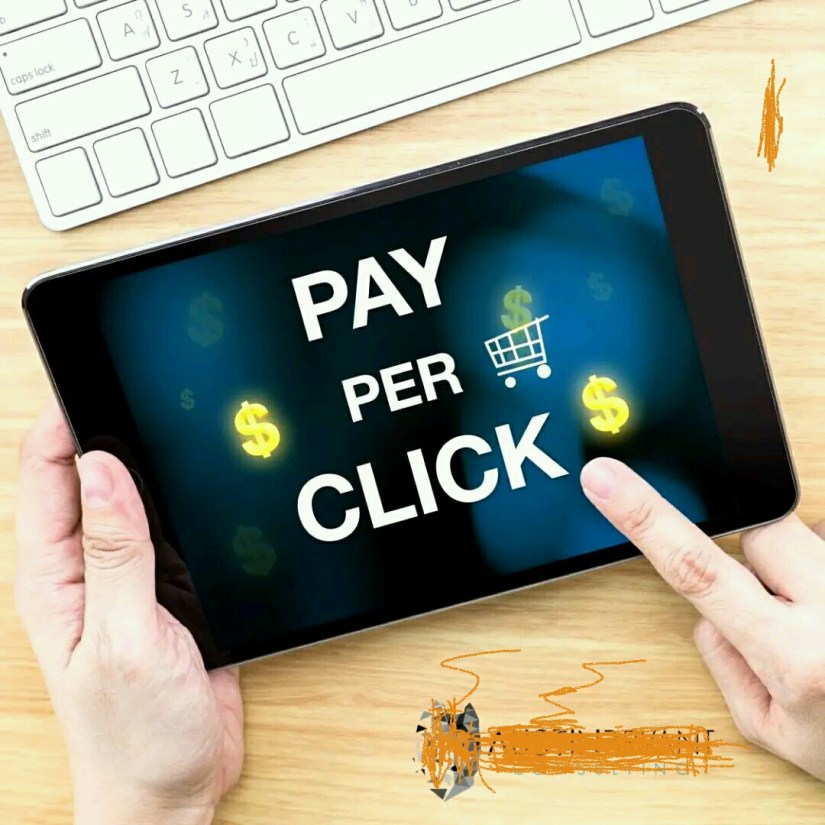What Is Pay-Per-Click Advertising And Benefits
In this article (What Is Pay-Per-Click Advertising And Benefits) we shall discuss the followings;
1) What Is Pay-Per-Click Advertising?
2) Benefits of Pay Per Click Advertising (PPC)
3) PPC Terms for The Beginners
4) Why Do We Run PPC Campaign?
5) Types of PPC Advertising

1) What Is Pay-Per-Click Advertising?
Pay Per Click Advertising is one of the 7 major types of Digital Marketing. Other major types of Digital Marketing are;
1. Search Engine Marketing
2. Social Media Marketing
3. Affiliate Marketing
4. Search Engine Optimization
5. Content Marketing
6. Email Marketing
Pay-Per-Click Advertising (PPC) is a form of advertising where the advertiser pays for each click to their website or app. Google Ads is the most well known PPC Advertising Network, where advertisers bid on keywords for clicks to their websites. Advertisers only pay when their advertisement is clicked.
Want to increase traffic to your website fast?
Try Pay-Per-Click advertising!
What Is Pay-Per-Click Advertising?
PPC is an online advertising model in which advertisers pay each time a user clicks on one of their online ads.
There are different types of PPC ads, but one of the most common types is the paid search ad. These ads appear when people search for things online using a search engine like Google – especially when they are performing commercial searches, meaning that they’re looking for something to buy. This could be anything from a mobile search, a local service search, someone shopping for a gift. All of these searches trigger pay-per-click ads.
In pay-per-click advertising, businesses running ads are only charged when a user actually clicks on their ad, hence the name “pay-per-click.”
Pay-Per-Click can really boost traffic and sales!
PPC stands for “pay-per-click” a model of internet marketing in which advertisers pay a fee each time one of their ads is clicked. Essentially, it’s a way of buying visits to your site, rather than attempting to “earn” those visits organically.
Search engine advertising is one of the most popular forms of PPC. It allows advertisers to bid for ad placement in a search engine’s sponsored links when someone searches on a keyword that is related to their business offering. For example, if we bid on the keyword “PPC software” our ad might show up in the very top spot on the Google results page.
PPC is a ranking technique through this technique we rank our product on Amazon
It also means when you run a campaign on amazon against a product Amazon charges you whenever a customer opens your product listing because Amazon shows your store to that customer
Every time our ad is clicked, sending a visitor to our website, we have to pay the search engine a small fee. When PPC is working correctly, the fee is trivial, because the visit is worth more than what you pay for it. In other words, if we pay $3 for a click, but the click results in a $300 sale, then we have made a hefty profit.
A lot goes into building a winning PPC campaign:
From researching and selecting the right keywords, to organizing those keywords into well-organized campaigns and ad groups, to setting up PPC landing pages that are optimized for conversions.
Search engines reward advertisers who can create relevant, intelligently targeted pay-per-click campaigns by charging them less for ad clicks.
If your ads and landing pages are useful and satisfying to users, Google charges you less per click, leading to higher profits for your business. So if you want to start using PPC, it’s important to learn how to do it right.
PPC, or pay-per-click, is a popular marketing strategy used in online campaigns that aids in increasing website traffic. Because the marketer only pays the publisher when the ad is clicked, it is incredibly effective.
This prevents advertisers from investing their budgets in campaigns that can’t be measured quantitatively.
Pay-per-click, PPC, is a paid advertising model that falls under search engine marketing (SEM). With PPC, the advertiser only pays when people interact with their ad through impressions or clicks.
2) Benefits of PPC:
-PPC ads are cost-effective.
-PPC ads produce fast results.
-You can easily control and test PPC ads.
-PPC ads allow you to target your ideal customers.
-Algorithm changes have little effect on PPC ads.
-PPC ads help you rank even with low domain ratings.
-Data from PPC ads can improve your SEO strategy.
3) PPC Terms for The Beginners
PPC = Pay per click
ACoS = advertising cost of sale
TACoS = Total advertising cost of sale
4) Why Do We Run A PPC Campaign?
We run a PPC campaign, when we launch a new product on amazon it will be visible after a number of pages when we pay amazon then it will show our product to customers through which our product is ranked and becomes visible on the first pages.
We can run a PPC campaign against a product that is already listed but getting fewer orders.
5) What are the types of PPC Campaigns?
There are two types of PPC campaigns.
1. Automatic campaign
2. Manual campaign
What is the difference between an Automatic Campaign and a Manual campaign?
Automatic Campaign.
We run a campaign against our product and amazon will find a suitable keyword for our product from the listing and when a customer searches that keyword Amazon will show our product to that customer
Manual Campaign
In the Manual campaign, we do keyword research and find good keywords for our product.
These keywords have 3 categories;
* Broad keyword
* Phrase keywords
* Exact keywords
SEE ALSO : BEST WAYS TO SELL PRODUCTS ONLINE
With this article am sure you have known What Is Pay-Per-Click Advertising and benefits is all about.
